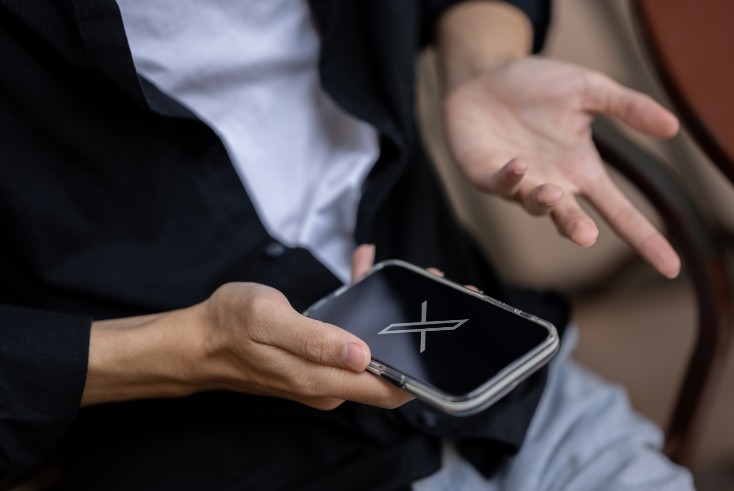‘Responding to bullying’? Unilever dropped from X lawsuit

Unilever has been dropped from a lawsuit filed by X in August that alleged major advertisers had unlawfully conspired to boycott the platform.
In a filing on 11 October, X dismissed its charges against Unilever. Apart from British consumer goods company, X had also sued the World Federation of Advertisers (WFA), Danish renewable energy company Orsted, FMCG brand Mars, and pharmacy company CVS Health.
X has not dropped charges against the other companies.
Unilever did not respond to a request for comment.
A spokesperson for X posted on the platform: “X is pleased to have reached an agreement with Unilever and to continue our partnership with them on the platform. Today’s news is the first part of the ecosystem-wide solution and we look forward to more resolution across the industry.”
Terms of the arrangement were not publicly detailed.
Analysis: News ‘comes as a surprise’ to critics of lawsuit
The charges stem from advertisers electing to stop spending on the microblogging platform in the years since Elon Musk purchased Twitter in 2022 and subsequently gutted its content moderation teams. The result has been a platform viewed as bereft of brand safety, causing advertisers to take their marketing spend elsewhere.
In a dramatic contemporaneous video, X CEO Linda Yaccarino alleged the companies in question “organised a systematic illegal boycott against X”.
“These organisations targeted our company, and you, our users,” she said. “That puts your global town square, the one place where you can express yourself freely and openly, at long-term risk.”
‘Weaponised’ litigation: Industry stands ground against X following GARM shutdown
Due to the lawsuit, the WFA’s Global Alliance for Responsible Media (GARM), a non-profit organisation which aimed to advise brands and marketers to support online safety measures, shut down due to its inability to afford legal fees associated with its defense.
The ad industry responded incredulously, with critics suggesting that it was an example of a SLAPP suit, or strategic litigation against public participation.
Ruben Schreurs, chief strategy officer at media and marketing consultancy Ebiquity, told The Media Leader at the time that “no serious brand advertiser in their right mind will return to advertising on X under its current leadership,” adding that “litigation should not be allowed to be weaponised in a way where organisations can be hamstrung by overwhelming and unwarranted legal pressures from better-funded plaintiffs”.
In reaction to the news that Unilever had been dropped from the lawsuit, Schreurs told The Media Leader: “We are not privy to the terms of the partnership agreement between Unilever and X, so I am not able to comment on the specifics. However, the news did come as a surprise, to say the least. We eagerly await further developments on this matter.”
The settlement notably occurs amid a shake-up of Unilever’s media team and an ongoing global review of its media accounts. Last month, Unilever’s executive vice president of global media Luis Di Como announced he would be exiting his role at the end of the year amid cost-cutting efforts. Diageo’s global media chief Isabel Massey was subsequently poached to become Unilever’s vice president of integrated brand experiences.
‘Advertising revenue is a privilege and not a right’
X’s revenue and brand value have dropped significantly since Musk purchased the platform.
Advertisers have shown a distinct lack of interest in spending on X despite the threat of legal action, thanks in part to lacking brand safety assurances and media effectiveness, and Musk’s own antagonistic posture. Musk himself has admitted ad revenues have fallen as much as 50%.
A net 26% of marketing professionals recently surveyed by Kantar said they plan to reduce adspend on X next year — the largest recorded pullback in expected spend for any media owner since the company began measuring marketer sentiment in its annual Media Reactions report in 2020.
Further, just 4% of marketers surveyed by Kantar said X provides a brand-safe environment for advertising.
Meanwhile, data from strategy consultancy Brand Finance last month revealed the platform has lost over $5bn in brand value since Musk rebranded it to X.
But with a major brand like Unilever cutting a settlement deal with the platform, it’s plausible X’s legal strategy is having some effect on influencing companies to continue advertising on the platform.
Harriet Kingaby, co-chair of the Conscious Advertising Network, suggested Unilever is “responding to bullying and essentially pledging to financially support a platform that’s causing real harm to avoid a lawsuit.”
She continued: “This is not only bad for the individual brands who’ll lose out from less effective ads, but also society and the wider business. The IMF found that social unrest leads to 1% falls in GDP over 18 months. Why would any brand want to be spending so much money in a way that’s going to hurt its customers, and impact its business?
“As an industry, we should be standing up for our commercial freedoms to choose where our advertising is placed. Advertising revenue is a privilege and not a right.”




